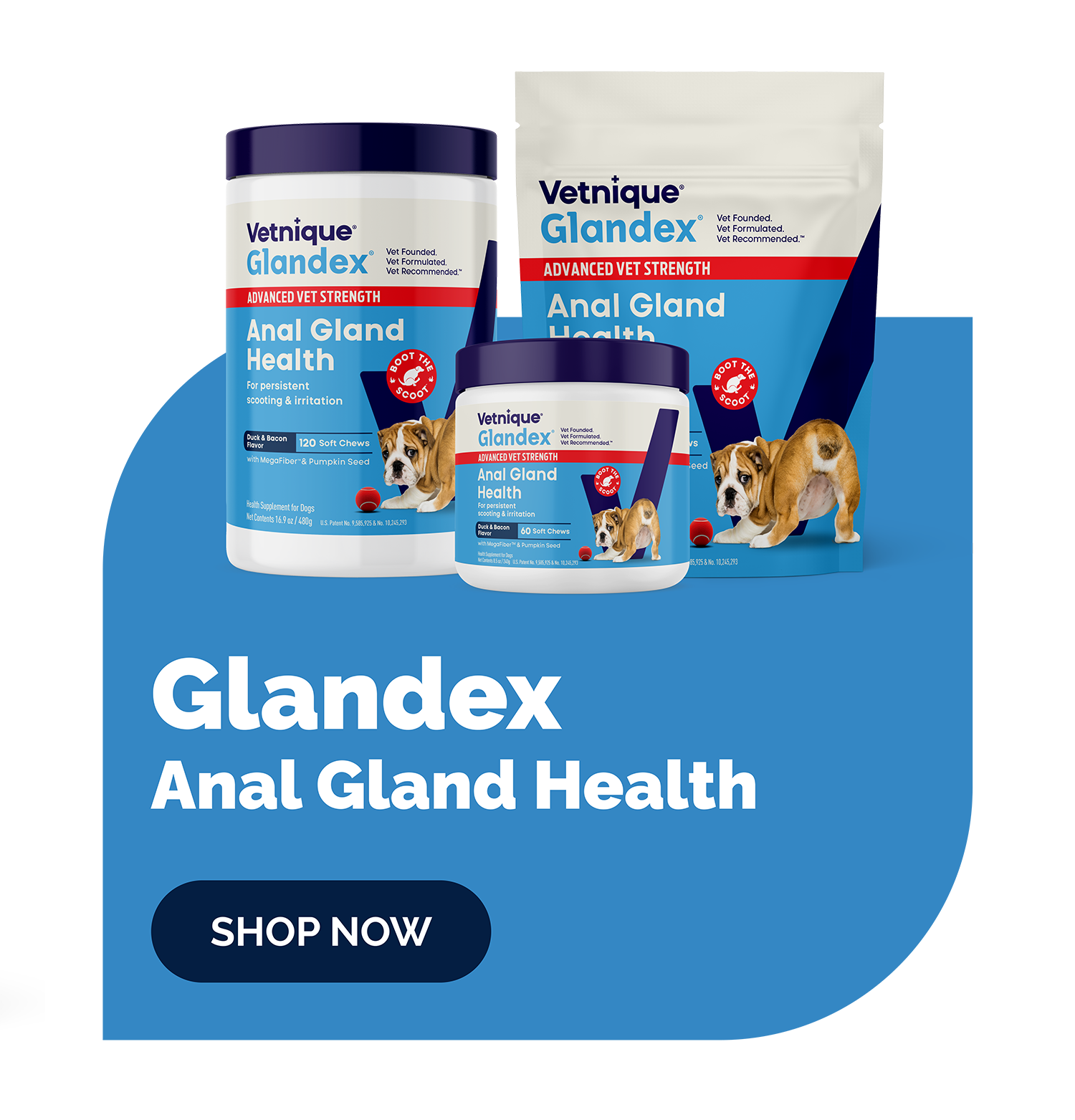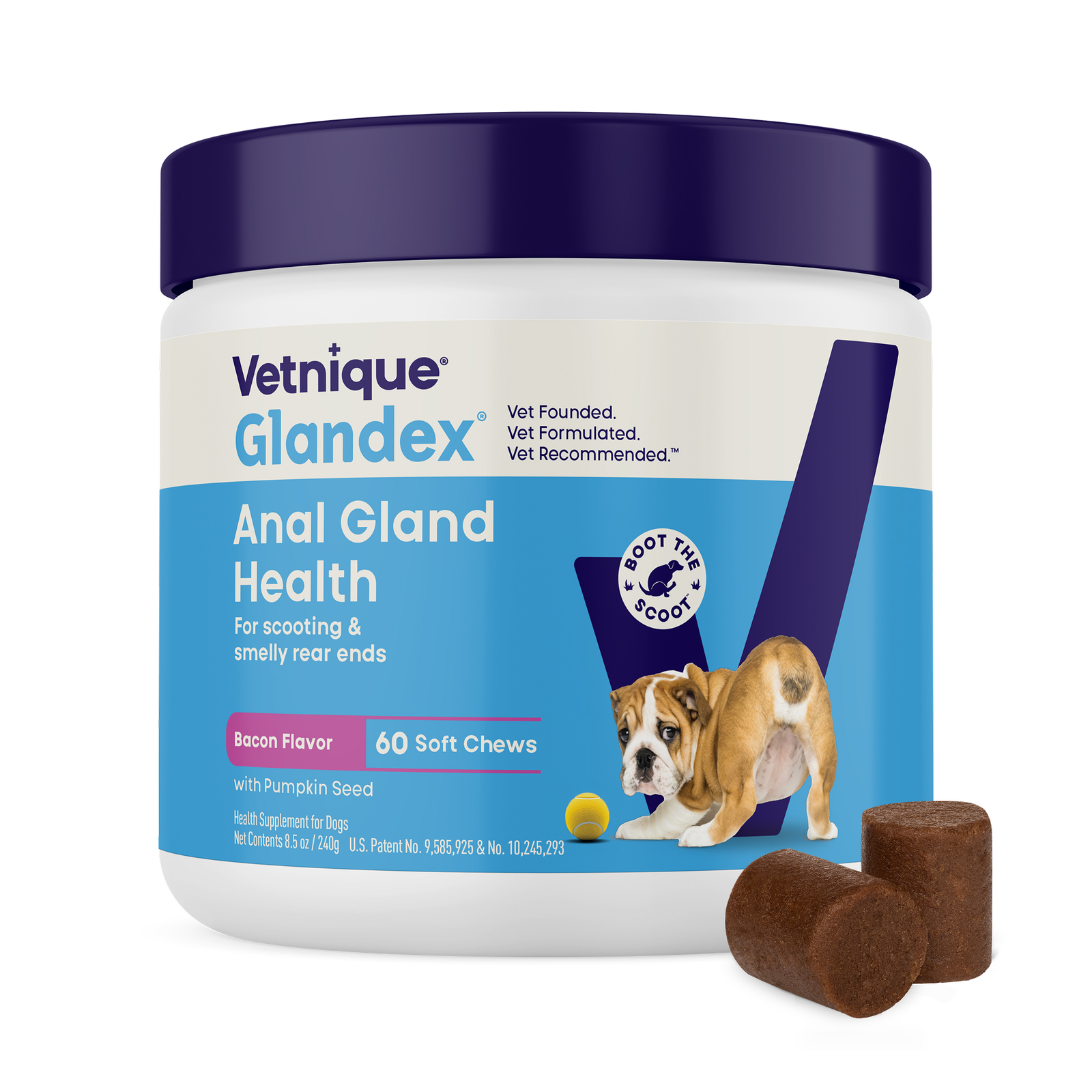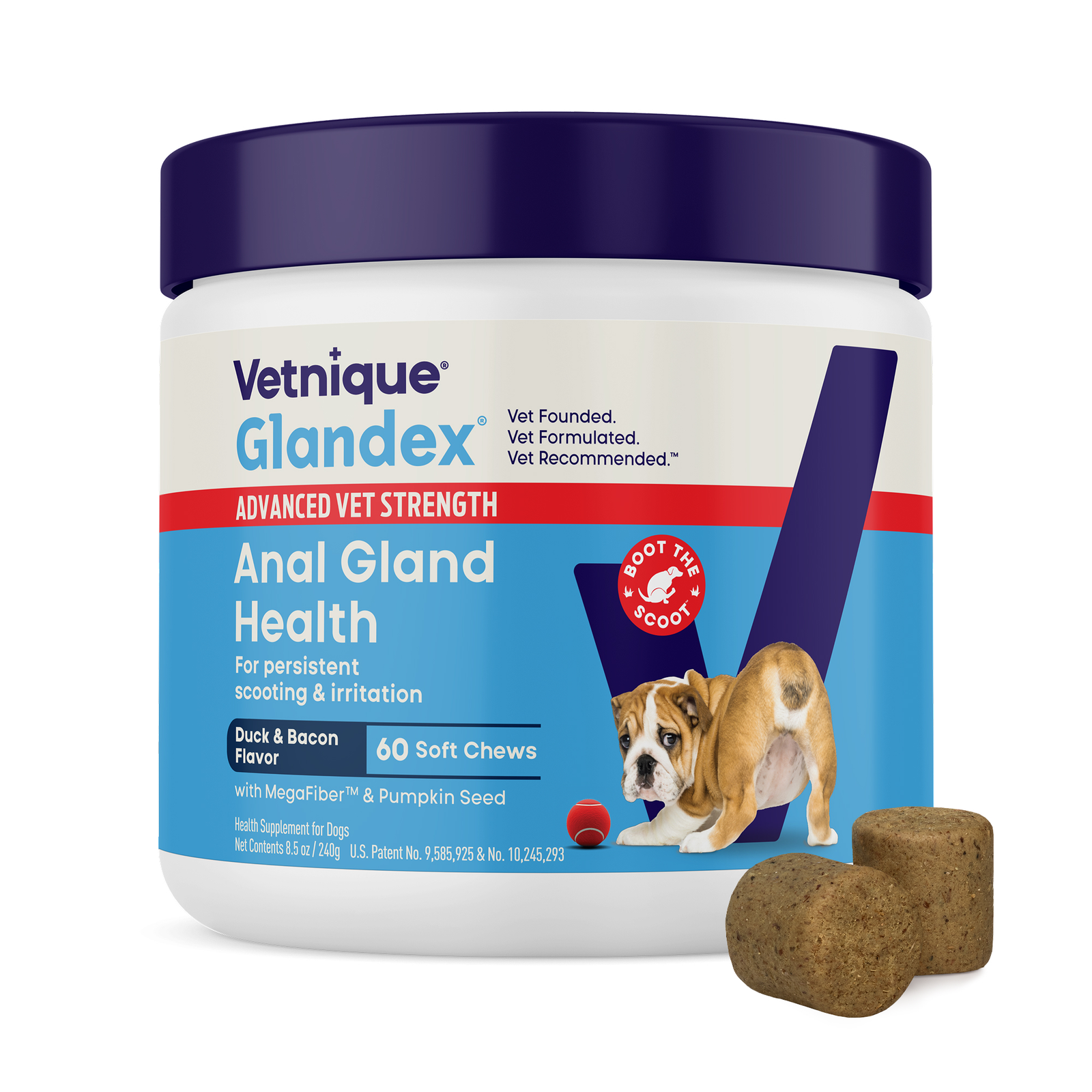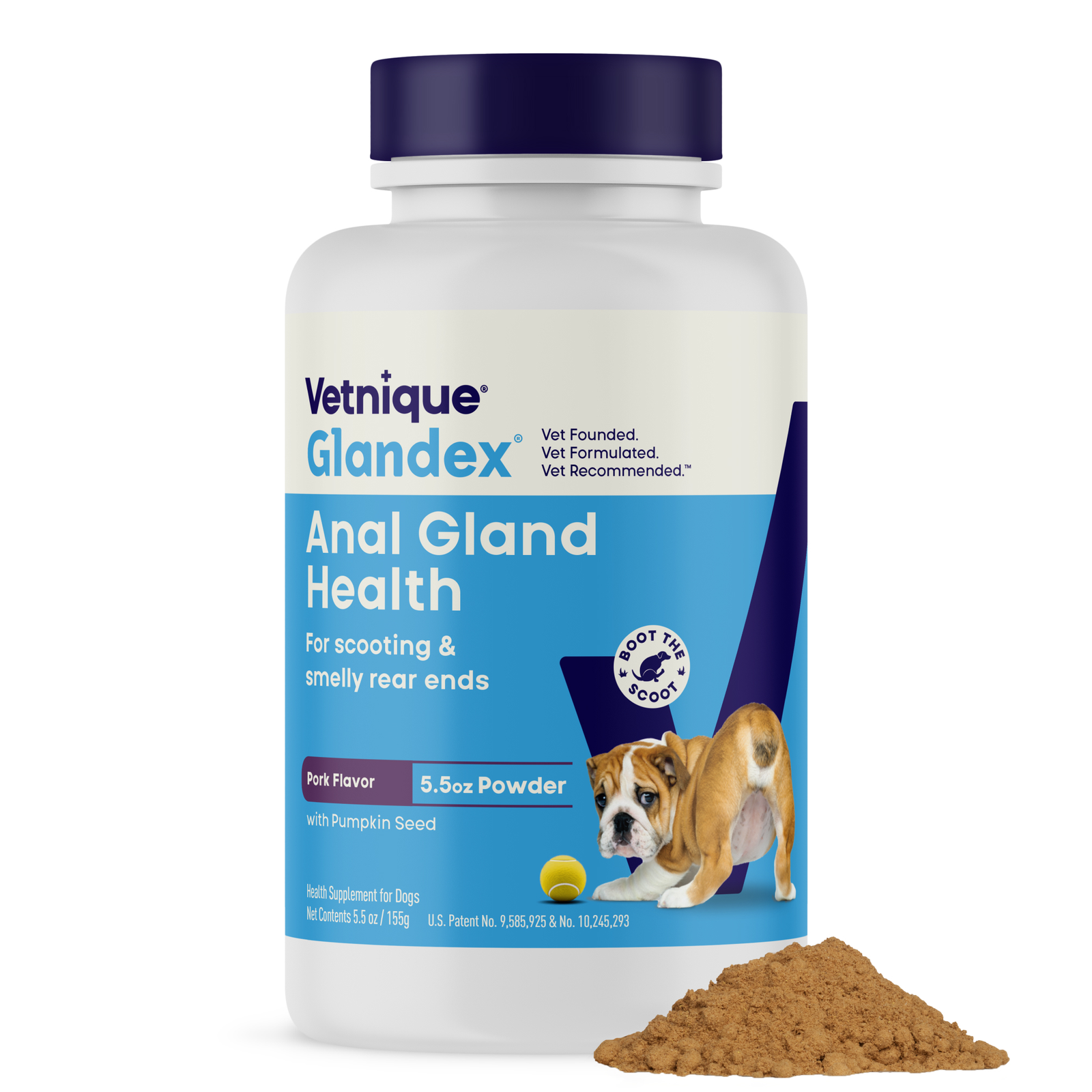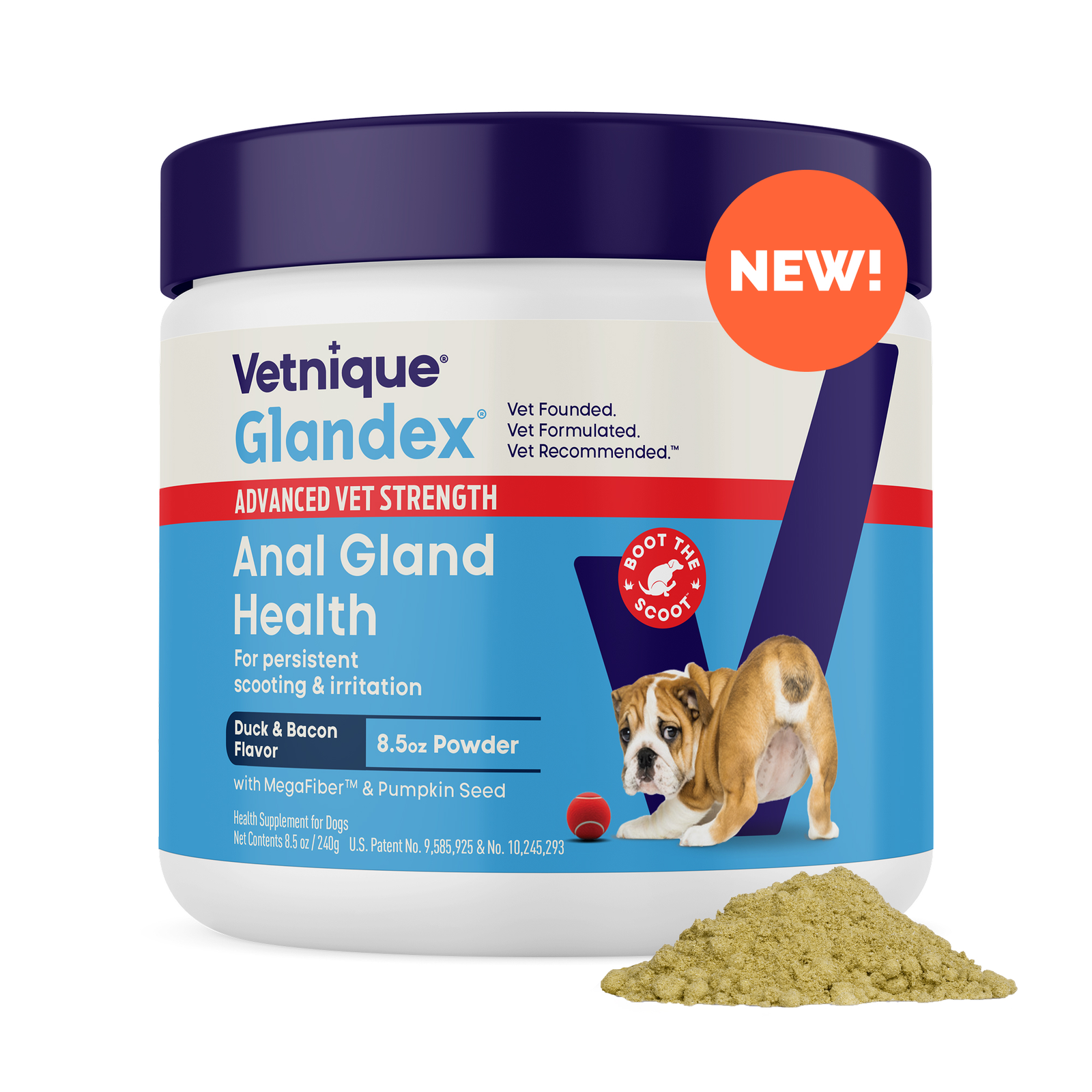Breed Secrets: A Complete Guide to Golden Retrievers
Vet Verified
OCT. 2023 | WRITTEN BY DR. PATRICK MAHANEY

Golden Retrievers are beloved for their warm-hearted nature and sunny disposition. But beneath their glistening coats lies a potential for certain health conditions that every Golden Retriever pet parent should know about.
In this comprehensive guide to Golden Retriever health, we'll delve into the top issues for Golden Retrievers, explore the factors influencing their lifespan, answer some commonly asked questions about the breed, and celebrate what makes them a great choice as an addition to your family.
Golden Retriever skin issues
Golden Retrievers boast luscious coats, but sometimes their skin needs a little help. Skin issues can manifest in various ways, from itching and redness to rashes and hot spots. Allergies, both food and environmental, are common culprits.
When confronted with skin issues like skin allergies or atopic dermatitis, it's important to consult a veterinarian you trust. Veterinary experts use specialized diagnostic tests to identify the specific allergen responsible for your golden’s skin issues. Treatment options may include dietary modifications, oral medication (e.g., antihistamines, steroids, immunomodulators), allergy supplements, or even topical medications (e.g., antibiotics, antifungals, steroids, topical anesthetics, etc).
Routine grooming and the use of hypoallergenic shampoos can also be helpful in maintaining your Golden's skin health. Routine grooming including brushing, bathing, and keeping hair trimmed in areas where allergens and debris accumulate can be helpful in keeping skin happy and healthy.
Heart problems in Golden Retrievers
Golden Retrievers may be known for their warm hearts, but they may also be susceptible to heart problems. One of those problems is aortic stenosis, a cardiac condition that occurs when the aortic valve narrows and obstructs the flow of oxygenated blood from the heart to the rest of the body.
Given the potential danger of this issue, routine cardiac screenings are critical for this breed. Early detection is key to devising effective management strategies. Having a physical exam by a veterinarian can include:
-
A thorough auditory heart evaluation. Your vet will use a stethoscope and palpate (touch) the femoral arteries in your dog's right and left upper/inner thighs. This is usually the starting point of an exam.
-
Electrocardiogram (aka ECG or EKG)
-
Blood pressure assessment
-
Echocardiogram (ultrasound of the heart)
-
Chest radiographs (x-rays)
More techniques might also be used to assess your dog's heart, blood vessels, and other internal organs.
Treatments range from medication to surgical interventions, all aimed at preserving the vitality of your Golden's heart health.
Cancer in Golden Retrievers
Cancer is a formidable adversary that can affect any dog and unfortunately, the Golden Retriever is one of the breeds having the highest rates of cancer. Various types of cancer, including lymphoma (cancer of the lymph nodes), hemangiosarcoma (cancer of blood vessel cells), osteosarcoma (cancer of bone), and others are known to be prevalent in the breed.
Genetics play a major role in the development of cancer, making it vital to be proactive in identifying any symptoms, including:
-
Mass-like lesions (lumps, bumps)
-
Lethargy
-
Exercise intolerance
-
Reduced appetite
-
Changes in food and water consumption
-
Changes in urination
-
Changes in bowel movement habits
Early detection through regular veterinary check-ups and screenings enhances the chances of successful treatment. Your veterinary oncologist may suggest a treatment plan that includes a combination of treatments including surgery, chemotherapy, radiation therapy, and complementary and alternative medicine (herbal formulations, dietary changes, acupuncture, etc.).

Cataracts in Golden Retrievers
Cataracts are another concern within the realm of Golden Retriever health. These cloudy opacities in the eye's lens commonly develop as a dog ages. They affect their vision by blocking light as it moves through the lens to the back of the eye to be received by the retina. While cataracts may not be as prevalent as some other health issues, they still warrant attention.
Cataract development isn’t exclusive to older dogs. Some dogs under 1 year of age can develop juvenile cataracts, which are a condition usually caused by genetics.
Regular eye examinations by your veterinarian can help detect cataracts in their early stages. If cataracts are diagnosed, schedule a consultation with a veterinary ophthalmologist to more thoroughly evaluate the issue and determine if treatment is necessary.
Support with antioxidants, minerals, and other nutritional elements can play a component in supporting your dog's eyesight and could help slow cataract progression.
Hip and elbow dysplasia in Golden Retrievers
Hip and elbow dysplasia are orthopedic conditions that can trouble Golden Retrievers. These developmental issues affect the joints, causing pain and mobility limitations. Genetic factors are often the reason why Goldens have a higher risk of dysplasia.
Orthopedic Foundation for Animals (OFA) has an established screening system where x-rays of the dam's (mother's) and sire's (father's) hips, elbows, and other joints help assess orthopedic health and indicate the dogs having better genetics to be passed onto future generations.
While complete prevention can be challenging, maintaining a healthy weight, regular exercise, and providing joint supplements can mitigate symptoms and enhance your Golden's quality of life.
Panosteitis is another joint condition that can affect Goldens, since they’re on the larger side of the breed spectrum. Panosteitis affects the superficial layer of the bone–called the periosteum–causing painful inflammation as your dog grows and reaches adulthood.
How long do Golden Retrievers live?
One of the most frequently asked questions about this dog breed is: how long do Golden Retrievers live? On average, these beloved companions can grace our lives for approximately 10 to 12 years. However, this lifespan can vary.
A number of factors can affect your Golden’s life expectancy. Genetics, diet, exercise, and quality healthcare are all pivotal in determining the duration of your dog’s journey.
Golden Retrievers affected by life-threatening diseases like cancer have shorter lifespans, but so can dogs who develop certain conditions at an earlier age:
-
Glandular abnormalities (kidney and liver disease, diabetes, and others)
-
Orthopedic problems that compromise comfort and mobility
To promote a longer life, keep up regular veterinary check-ups and a balanced lifestyle regimen that includes healthy nutrition, weight management, and daily exercise.

What makes Golden Retrievers great?
-
service & intelligence
Are Golden Retrievers smart? Yes––they’re ranked in the world’s top 5 smartest dog breeds.
Golden Retrievers' remarkable intelligence and kind nature make them splendid candidates for service roles. Whether assisting the visually impaired as guide dogs, providing emotional support as therapy dogs, or braving the frontlines of search and rescue operations, their adaptability and quick learning make Golden Retrievers invaluable. Their sensitivity to human emotions further underscores their suitability for these roles.
-
good family dogs
What truly sets Golden Retrievers apart is their natural disposition as family dogs. They’re beloved for their unwavering loyalty, patience, and affection, especially when it comes to children. Their gentle demeanor and intuitive understanding of familial bonds give them a unique advantage, so they’re able to seamlessly integrate into households of all sizes. They become not just pets but cherished family members who enrich our lives with their warmth and companionship.
-
sweet puppies
All puppies are precious, and it's impossible to resist the charms of Golden Retriever puppies! Their playful antics, boundless energy, and insatiable curiosity can infuse any home with an infectious joy. Raising a Golden Retriever puppy, though rewarding, requires patience and consistent training. This breed’s intelligence will shine as they quickly grasp commands and show a remarkable capacity for learning.
If you’re thinking about adding this breed to your family, you’ll need a deeper understanding of the top issues for Golden Retrievers’ health to support their overall well-being. Their average lifespan of 10 to 12 years gives you time to enjoy the exceptional qualities that make them lovable family dogs and invaluable service dogs.
